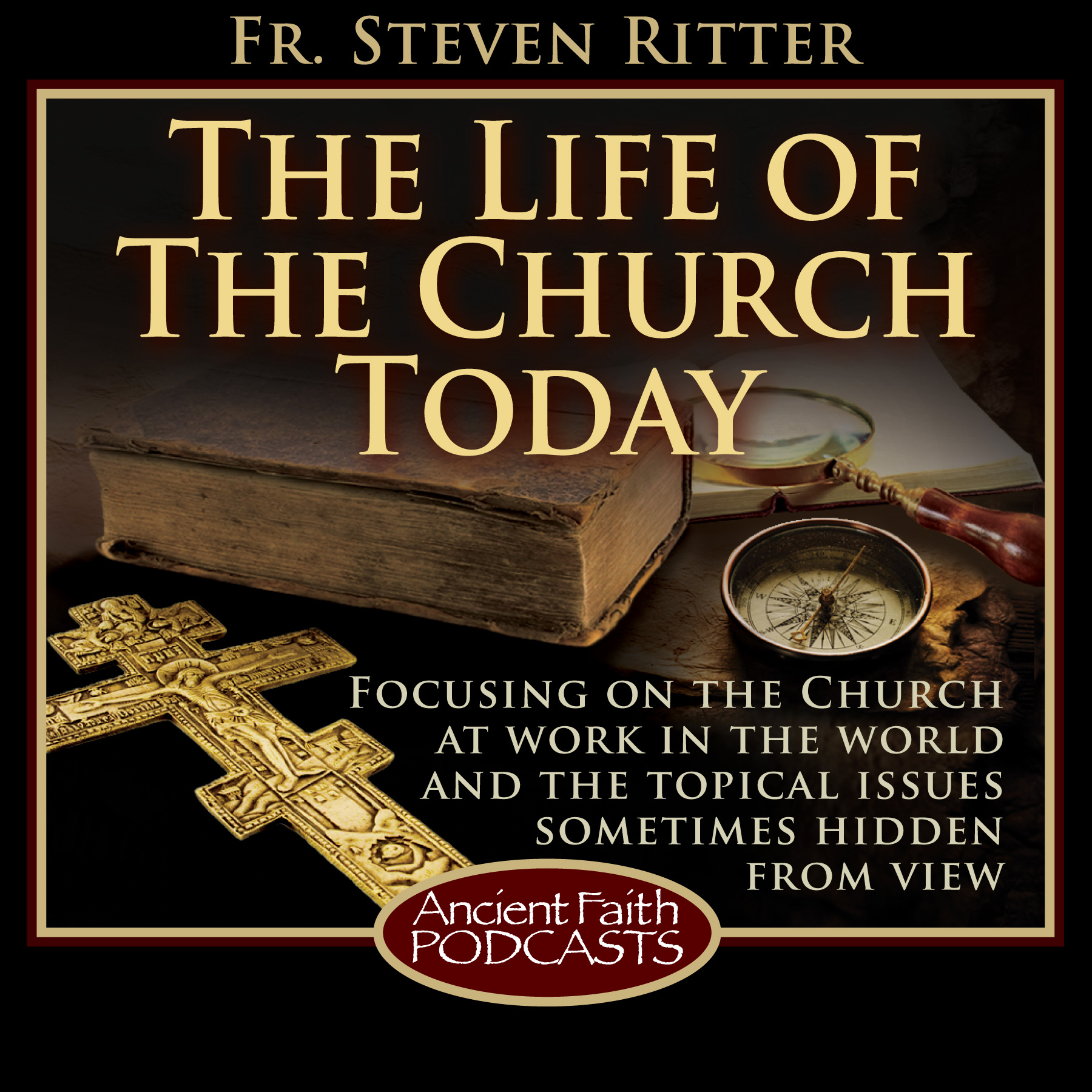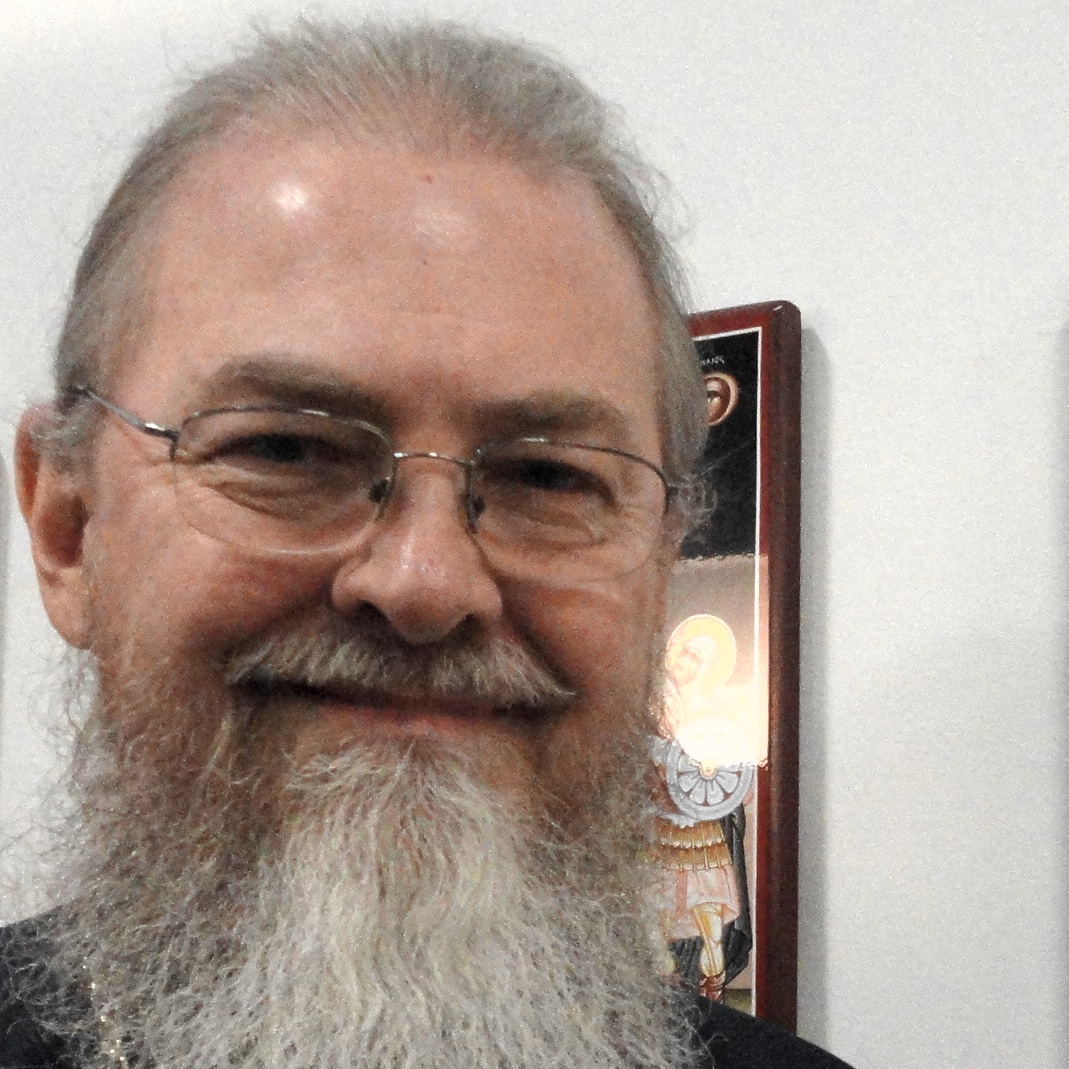Dear friends, you have perhaps noticed, as I certainly have since COVID began, the proliferation of the Orthodox doom-sayers and fear-mongerers. Usually I keep quiet when such people emerge, considering their spirituality misguided and darkened, hoping they will see the light of true Orthodoxy and all its brilliance and hope-inspiring philanthropy which comes from our Creator and Savior, Jesus Christ. But recently things have come to a breaking point with me in that their constant reiterations about demonic vaccinations, solidly Protestant end-times hysteria narratives, and “let’s hunker down and prepare for the storm” so-called spiritual guidance that it becomes important to call them out on this sort of thing.
Fear is their constant diet, resulting in a vomitous spew that seeks to infect as many people as possible. First, it’s important to remember that fear is the absolute antithesis of Orthodox Christian faith. End-times hysteria was never part of the Christian message. The book of Revelation, that horribly misunderstood text that has been abused more than any other book in the Bible, ends, if we assume that the book is proclaiming the horrorshow that some think, with these marvelous words: “He who testifies to these things says: Surely, I am coming quickly. Amen. Even so, come, Lord Jesus!” There is no fear in these statements, only a welcome hopefulness that anticipates a glorious second coming, a truly intense desire to see the Lord. Yet what we are hearing today from internet-savvy, self-appointed spiritual guides and amateur theologians is exactly the opposite.
These people draw strength from cult-like proclamations that breathe the spirit of the early heresies, where the search for a “pure” church became the overriding factor in the spiritual life, an almost Gnostic-like absorption of the idea that only a few who really understand what is going on in the world will be able to prepare themselves for the trials and tribulations to come. The divisiveness of this ideology, pitting parishioner against parishioner, congregation against priest, priest against bishop, and a terribly guru-like following of people who enjoy only limited episcopal supervision, if any, is far more redolent of the spirit of Antichrist, who seeks just this sort of chaos in the Orthodox Christian community. Even a cursory stroll through the pages of the letters of the New Testament show that one overriding concern was the unity of the faith and the importance of the community in Christ. We are told that many will come to deceive, yet to remain faithful to that which has been given us.
We do not exercise our Orthodox faith in a vacuum! There is a hierarchical structure that consists of bishops as the inheritors of apostolic succession and authority, the priests who act in their name, and the deacons who facilitate action in the Church. Not only that, but the laity as a whole play a vital role in this transmission of truth. This “system,” for lack of a better word, is instituted by God and has served the Church very well for 2,000 years. To listen to some voices out there, including certain cyberspace clergy who often go against what the vast majority of bishops say, is a completely unorthodox and spiritually risky behavior, a course of action that finds its roots not in solid Orthodox theology and practice, but in cultish devotion to personality and portentious self-aggrandizement.
Many of these spiritual guides masquerade as though simply wanting to teach things about the faith, even though their qualifications for doing so are suspect or lacking a solid episcopal backing. Some hide in the shadows of close scrutiny, seeking to cultivate followings on the internet that they cannot muster in person, a sort of congregation of the computer, passing along the light of the true way to those gullible enough to follow. And there are also some who, being genuinely knowledgeable about many Orthodox topics, infuse their own personal opinions and narratives into current events, using their fan-base as a means to influence others, especially those of weaker faith who often need this sort of hunker-down mentality for reassurance.
But the worst and most dangerous type of activity are those whose instructions actively cause dissent and disunity within the parish structure. I’m hearing from many priests, from various parts of the country, who are having to deal with schismatic ideology that is the direct result of provocation by some of these internet talking heads, especially some who are clergy. When a clergyman make statements that suggest a person seek a purer parish life, meaning a parish more inclined to his own political views, and this person then leaves his or her community in Christ for reasons that have nothing to do with the proclamation of faith in that parish, this is a great sin indeed. Especially here in America, where the roots of Protestant thought run deep and are hard to eradicate, especially in converts, the wild hairs of misaligned clergy who have no oversight or supervision or accountability for their statements can become tantamount to fomenting schism.
When the mind of the Church is left for the mind of an individual, no matter how scholarly or personable—for the great heretics were also these things—there is truly no mind left. If one leaves one’s congregation, one is also effectively leaving one’s bishop, and this has grave consequences for the state of one’s soul, especially concerning the aforementioned clergy. There are canons in the Orthodox Church that prevent a priest from leaving his diocese without a blessing, and entering into another one without a blessing. This is so, precisely so the bishops can ascertain who the cleric is and what his intention is for moving from one place to another to exercise a priestly function, whether serving or teaching. Yet, in the case of the internet clergy, they freely move about the entire world with no blessing at all, into the homes or phones or computers of any person in any diocese they choose. They are not subject to episcopal scrutiny, and when some bishop or two might perchance to say something, they can be safely ignored.
In the meanwhile, however, the resulting confusion and discord can wreak havoc in a community, supplanting the advice of a father confessor and leading unwitting Orthodox people into dangerous and unhealthy thought patterns and dark spirituality that is the polar opposite of genuine Orthodox piety. The devil that these personalities seek to avoid is thereby actually being propagated by the discord and mistrust sown in cyberspace. Words have consequences, and those uttering them should be held accountable. As the Lord tells us in the gospel of Matthew, “I say to you that for every idle word men may speak, they will give account of it in the day of judgment.” No doubt those words that were the cause of dissension and division will be given special treatment.
Perhaps the biggest reason these perpetrators of a false vision of God and faith have found such resonance is the current COVID crisis. Many people are fearful, and with good reason—this is not something to be trifled with, no matter what side of the debate you’re on—but the reason in this case also borders on the irrational. For in Orthodoxy there is no cause for genuine fear. St. Ignatius of Antioch ran to the wild beasts, imploring those to whom he was writing to in no way to interfere with the path he was on. St. Paul offered to sacrifice his very salvation for the sake of his brethren. St. Maria of Paris took the place of someone destined for the Nazi ovens. Countless saints, when faced with persecutions or moral compromises, simply went to their deaths with no fear at all, laughing at the attempts to make them deny their faith.
What we see today is a lack of faith and trust in the God who has promised that all things work together for our good, no matter what that outcome may be. We are not stupid creatures. We don’t run out in the midst of traffic, trusting God will keep us safe, but after due consideration and doing all that we can do as rational sheep, we trust God to take care of us. There are those on internet platforms that seem to suggest that we be fearful of anything coming our way in the least threatening or difficult for us, but Orthodoxy thrives amid the difficult. We move forward joyfully in expectation of the moment when we get to meet the Lord face to face. We do not fear anything man can do to it. We do not engage in wanton religious conspiracy theories, nor do we pose as Antichrist-watchers, looking for signs and activities of his imminent appearance.
No, this is not the Orthodox way, this is not the way of the Fathers and Mothers of the Church, and it is certainly not the way of the Lord. Fear has no part in the Orthodox way. It torments the soul, leads to faithlessness, judgmentalism and atheism. It comes from our lesser appetites, those more akin to the irrational creatures of the earth rather than the God-breathed human hypostases gifted to us by God. Elder Thaddeus sums it up in a rather articulate and pointed manner. He says this:
The fear of God is not the animal-like fear of this world. Our fear is like that, and we must strive to conquer this. Such fear is from Hades. Our life is filled with fear. We fear what tomorrow will bring, what the future has in store for us. That is an animal-like fear. The fear of God is when you love him, when you truly love him with all your heart, and you strive to never to offend or sadden him, not only with your deeds, actions, and words, but also with your thoughts.
And of course, my brethren, we know that perfect love casts out all fear. The internet, like all technology, has its benefits and its problems, and many good things can be found there, but one must be very careful when considering the content and investigate the origins of the people offering them and whether they truly represent the teaching of the Church as opposed to the fanciful and ofttimes dangerous theories that are the result of purely personal opinion and persuasion. In this day and age, when one false statement can have grievous consequences—and we have all seen that in many realms that social media touches—one must go to great lengths in order to ascertain whether or not the content expresses genuine Orthodox spirituality and teaching as opposed to simply agreeing with our own personal opinions. Our opinions may not be in accordance with the mind of the Church, and if not, we should investigate why that is, and seek to change our minds.
But when certain teachings are causing dissension and division in the Church itself, we must flee such teaching, as if it were from the devil himself, because, in fact, it is. God forbid we fall victim to this kind of fear-mongering, and instead seek to maintain the healthy, life-affirming, and optimistic outlook that is part and parcel of the Orthodox faith, as we know that if God is with us, nothing can be against us. And may God bless each and every one of you.

 Fr. Steven Ritter
Fr. Steven Ritter